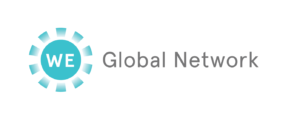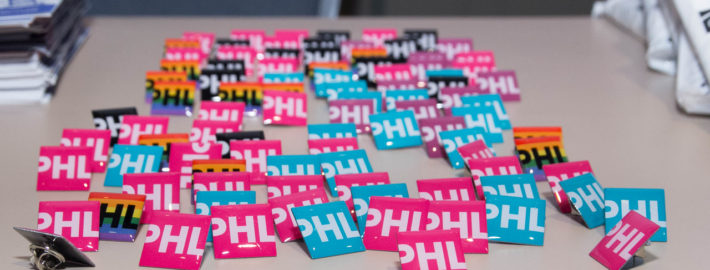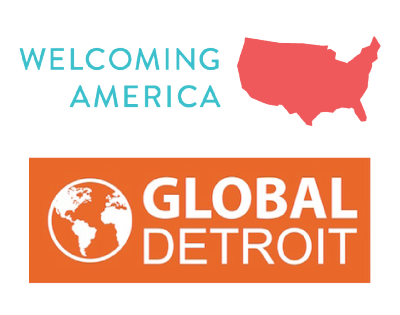2016 Convening Perspective: Q&A with the Hosts
Last month, Welcoming Economies Global Network (WE Global) brought together some 300 leaders in immigrant economic development for our 2016 Convening in Philadelphia. The Convening included workshops to highlight cutting edge policies, successful programs, and innovative ideas that welcome, retain, and empower immigrants as valued contributors to our economies. The Convening was co-hosted by the Welcoming Center for New Pennsylvanians and City of Philadelphia Office of Immigrant Affairs. We caught up with Welcoming Center’s Rebecca Rathje and Nicole Pumphrey, and Office of Immigrant Affairs’ Hani White and Miriam Enriquez to get their take on the Convening, and how hosting will provide momentum to the work in Philadelphia.
1. What inspired you to host the 2016 Convening?
Rebecca: Greater Philadelphia has resurfaced as a destination of choice for immigrants and refugees from across the globe. Here in Philly, a rich network of cross-sector services specifically designed to address the challenges and highlight the assets of newcomers has helped the Philadelphia metro area generate a strong welcoming environment that we’re very proud of. This rich ecosystem tells the WE Global Network story, and I think made Philly the perfect place to host, to share what we’ve learned, and move the work and Network forward.
Miriam: One of our great partners, the Welcoming Center for New Pennsylvanians, put in for Philadelphia to be the host. There was agreement from then Mayor-elect Kenney. We were inspired by the work that has been done in the past. This was a wonderful opportunity for Philadelphia to highlight our great work.
Hani: We Global Network’s work is really impressive, and we are glad that we could host this year, and we were inspired to share our amazing work in City of Philadelphia with others.
2. What was your most inspiring moment of the Convening?
Nikki: When we initially applied to be the host city, we wanted to be able to highlight the work being done locally and to engage as many partners as possible. For us, it was important to uplift those organizations making change at the neighborhood level. It was inspiring to see more than 20 community-based organizations in 5 neighborhoods come together to host to more than 100 people!
Miriam: I was inspired by the great speakers – Anne O’Callaghan, Osagie Imasogie, and Yasmine Mustafa, and all of the different perspectives on why immigrant integration is so important and the contributions immigrants bring to the local and national economy.
3. What did you learn that will be useful in your work moving forward?
Nikki: A few sessions provided tools on how to best weave the story of immigrant integration into mainstream economic development and workforce development strategies. As an organization that is often trying to find and leverage this intersection, tools to be able to do this work (and identify additional opportunities) is valuable.
Miriam: The Increasing Civic Participation within Immigrant Communities session was helpful as a representative with a government office to learn different ways to continue to engage our immigrants in the civic process.
Hani: I would like to join with next cohort of Welcoming America’s Welcoming Communities Transatlantic Exchange, which is an opportunity to visit other cities, as the first cohort did when it went to Germany and hosted a German delegation earlier this year. Participants from the Transatlantic Exchange shared their takeaways, and Betsy Cohen (St. Louis Mosaic Project) expressed returning home feeling extremely connected to the work, and to the global refugee crisis, and motivated to continue working for positive change.
4. How do you feel this movement has changed over last 5 years?
Nikki: With new research emerging (like recent state-level reports from New American Economy and WE Global and Fiscal Policy Institute’s data showing that immigrants should be an important component of vacant and distressed housing revitalization), making the case that immigrants drive economic growth has become that much easier. However, this election cycle and the current climate in the country has made abundantly clear that we live in a country divided. There is hard work ahead to ensure that this nation remains a place for all in search of opportunity, where diversity is seen not as a threat, but an asset.
Miriam: Although I am new to this area of work, in the short time I have been here, there has been so much talk both nationally and locally about the contributions of immigrants to our economy. Economic development and the economic contributions of our immigrant communities is an area that needs a brighter spotlight. When people hear the real numbers, they are always amazed. Convenings like this help in that effort.
Hani: The work of WE Global Network and its members is growing in an awesome direction as more people and organizations are getting involved. And most important that city and government official work hand in hand with nonprofits organization, CDFI, CDC, refugee resettlements, etc to elevate live quality of Immigrants




